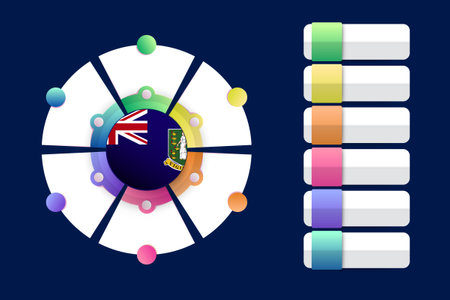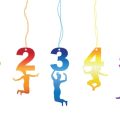Introduction: The I Ching and Its Journey to Britain
The I Ching, or Book of Changes, stands as one of the most venerable texts in Chinese philosophy, revered for millennia as both a manual of divination and a profound treatise on the nature of transformation. Emerging from ancient China, its hexagrams and poetic wisdom have guided emperors, scholars, and seekers alike through periods of uncertainty and flux. Yet, it is only within the past century that the I Ching’s enigmatic voice has found resonance within British shores. The journey of this classic from the East to the United Kingdom is a story marked by curiosity, translation, and cultural adaptation.
Arriving in Britain during an era of heightened interest in Eastern philosophies—particularly in the wake of post-war introspection—the I Ching was initially embraced by small circles of intellectuals and spiritual explorers. Over time, it gained momentum among those seeking alternatives to conventional Western religious frameworks. Today, the I Ching enjoys a growing presence within contemporary British spiritual communities. Its teachings are now woven into discussions on mindfulness, holistic living, and personal transformation, echoing across bookshops in Brighton, meditation retreats in the Lake District, and even urban spiritual hubs in London.
This evolving engagement reflects not only a fascination with the East but also a desire among Britons to integrate ancient wisdom into modern life. As contemporary British spirituality becomes increasingly eclectic and inclusive, the I Ching’s journey continues—its symbols reinterpreted through local lenses and its messages inspiring new forms of practice and reflection. In this landscape of integration and innovation, the I Ching stands as a testament to enduring cross-cultural dialogue—a source of insight for those navigating the ever-changing tides of twenty-first-century Britain.
2. Resonance with British Spiritual Traditions
The journey of the I Ching into contemporary British spirituality reveals a tapestry of resonance and divergence with established and emergent spiritual paths across the United Kingdom. The British Isles have long been a crucible for diverse spiritual traditions, from the ancient practices of Paganism to the contemplative depths of Anglican mysticism and the recent flourishing of Mindfulness. By examining these pathways alongside the I Ching, we can discern both harmonious echoes and instructive contrasts.
Parallels in Worldview and Practice
At its heart, the I Ching emphasises change, interconnectedness, and the cyclical nature of existence—concepts that find familiar ground in British Paganism. Both traditions revere natural rhythms, viewing time as circular rather than linear, and encourage practitioners to align themselves with the flow of life. In Anglican mysticism, there is a kinship in the embrace of paradox, silence, and contemplation. Likewise, Mindfulness—rooted now in many British wellbeing circles—shares with the I Ching an attentiveness to the present moment and acceptance of impermanence.
Comparative Table: Core Themes Across Traditions
| Spiritual Tradition | Worldview | Practice Focus | Relationship with Nature/Change |
|---|---|---|---|
| I Ching | Cyclical, Interconnected | Divination, Meditation on Change | Embraces transformation as fundamental |
| Paganism | Cyclical, Animistic | Rituals tied to seasons and elements | Celebrates cycles; honours nature’s shifts |
| Anglican Mysticism | Mystical Christian; paradoxical truths | Contemplation, Prayerful Silence | Seeks divine presence within change |
| Mindfulness | Non-judgemental Awareness | Bodily Presence, Acceptance of Impermanence | Observes change without attachment |
Contrasts: Approaches to Divinity and Authority
Divergences are equally instructive. While Anglican mysticism often centres on a personal God within a structured ecclesiastical framework, the I Ching is non-theistic and decentralised. Paganism’s polytheistic or animist perspective differs from the I Ching’s abstract cosmology rooted in yin-yang and hexagrams. Meanwhile, Mindfulness—especially as interpreted in British contexts—frequently eschews divinatory or metaphysical claims altogether, focusing instead on psychological well-being. These distinctions highlight how each tradition addresses questions of authority, meaning, and spiritual agency.
Navigating Integration: A Living Dialogue
The ongoing dialogue between the I Ching and British spiritualities thus embodies both harmony and creative tension. As seekers weave together insights from these varied traditions, they craft new expressions of meaning that honour both heritage and innovation—a testament to Britain’s enduring openness to wisdom from near and far.

3. Methods of Integration: Practice and Adaptation
Within contemporary British spirituality, the I Ching is not merely studied as an ancient text but actively woven into the fabric of spiritual life through a variety of practices. This integration reflects both respect for tradition and a willingness to innovate, creating pathways for personal and communal exploration. Here we examine how British practitioners adapt and incorporate the I Ching into their rituals, consultations, group work, and personal reflection.
Rituals: Honouring Tradition in a New Context
In the United Kingdom, rituals involving the I Ching often blend Eastern reverence with local sensibilities. Some groups light candles or incense before casting coins or yarrow sticks, invoking a sense of solemnity akin to traditional British ceremonies. Others might gather at sacred sites—ancient stone circles or parish halls—infusing their practice with a uniquely British atmosphere while honouring the oracle’s Chinese origins. Through these rituals, participants seek guidance, clarity, and connection to something greater than themselves.
Consultations: Personal Guidance in Modern Life
The consultation of the I Ching has found a niche within British spiritual counselling and coaching. Individuals may consult the oracle privately at home, using well-thumbed translations alongside a cherished set of coins or sticks, or attend sessions with spiritual advisors who specialise in integrating Eastern wisdom with Western psychological insight. The questions posed often reflect contemporary dilemmas—career changes, relationships, or ethical decisions—highlighting the adaptability of the I Ching’s wisdom to modern British concerns.
Group Work: Shared Exploration and Community
Group engagement with the I Ching fosters a spirit of collective inquiry and support. Study circles meet regularly in city centres or countryside retreats, sharing interpretations and experiences. These gatherings encourage dialogue across generations and backgrounds, echoing Britain’s tradition of open debate and learning. Sometimes, group readings are used to address shared challenges or aspirations, weaving individual insights into a tapestry of communal meaning.
Personal Reflection: A Journey Within
For many in Britain’s spiritual community, the I Ching serves as a private companion on their inner journey. Journaling after each consultation is common practice; individuals record hexagrams drawn, reflections on changing lines, and subsequent events. Over time, these records become personal chronicles of growth and transformation. The act of self-reflection aligns closely with British values of introspection and self-improvement, allowing practitioners to integrate ancient wisdom into their daily lives.
Adaptation: Blending Heritage with Innovation
The methods by which the I Ching is integrated into British spirituality are marked by both reverence for its origins and creative adaptation to local culture. Whether through ritualised gatherings or solitary meditation, its presence enriches spiritual practice across the UK, fostering an ongoing dialogue between East and West—a conversation that is both timeless and timely.
4. Innovation Through Cultural Synthesis
The enduring wisdom of the I Ching has found fertile ground in contemporary British spirituality, inspiring a wave of creative innovation across various cultural fields. British practitioners and thinkers have not simply imported the classic Chinese text; rather, they have woven its ancient insights into the rich tapestry of local art, literature, education, and therapeutic practice. This synthesis reflects both respect for tradition and a spirit of thoughtful adaptation.
Artistic Expression: Reimagining the Hexagrams
British artists have drawn inspiration from the I Ching’s symbolic system, using its hexagrams as motifs in visual art installations and community projects. For example, in London’s East End, collaborative mural paintings incorporate hexagram patterns alongside Celtic knotwork, symbolising the convergence of Eastern and Western philosophies. Such public artworks invite reflection on change, resilience, and interconnectedness—core themes of both the I Ching and British cultural heritage.
Literary Adaptation: The I Ching in Modern Storytelling
Writers have also embraced the I Ching as a narrative device. Contemporary British novels and poetry collections often reference or structure their works around the Book of Changes’ cycles, using its principles to explore fate, choice, and transformation within distinctly British contexts. These literary experiments foster dialogue between personal destiny and communal experience, echoing both Confucian introspection and British storytelling traditions.
Educational Integration: Wisdom in the Classroom
Some progressive schools and universities have introduced the I Ching into philosophy and ethics curricula. Teachers use its teachings to prompt debate on moral ambiguity, adaptability, and decision-making—qualities highly valued in modern British society. Workshops encourage students to interpret hexagrams through their own cultural lenses, fostering intercultural understanding and self-reflection.
Therapeutic Practice: Guiding Change in Counselling
Counsellors and therapists are increasingly integrating I Ching consultations into holistic well-being programmes. The following table highlights examples of such innovative applications:
Practice Area |
Innovation Example |
Distinctive British Element |
|---|---|---|
| Counselling | I Ching sessions used for life transition guidance | Incorporation of mindfulness walks in local parks during readings |
| Group Therapy | Collective interpretation of hexagrams for group dynamics | Use of round-table discussion reflecting Quaker traditions |
| Art Therapy | Clients create visual representations of personal hexagrams | Blending with motifs from local folklore and landscapes |
Nurturing an Inclusive Spiritual Dialogue
This evolving integration demonstrates how British innovators honour both their own traditions and those of distant cultures. Through this respectful synthesis, the I Ching becomes not merely a foreign curiosity but a living resource—enriching Britain’s spiritual landscape with fresh perspectives on change, unity, and creative potential.
5. Challenges and Critiques
The adoption of the I Ching within contemporary British spirituality, while reflective of a growing openness to global wisdom traditions, has not been without its challenges and critiques. Central to these discussions are concerns regarding authenticity, cultural appropriation, and the risk of misinterpretation as ancient Chinese philosophy is integrated into a distinctly British context.
Authenticity in Practice
Authenticity remains a perennial question when spiritual traditions cross cultural boundaries. Many British practitioners are keenly aware that their engagement with the I Ching may differ from traditional Chinese approaches, both in ritual and philosophical depth. There is an ongoing dialogue about how faithfully the original meanings and methods can be preserved amid adaptation. Some argue that translation—both linguistic and cultural—inevitably introduces shifts in meaning, raising questions about whether these adaptations remain true to the spirit of the I Ching or become something altogether different.
Cultural Appropriation Concerns
Cultural appropriation has become a particularly sensitive issue within Britain’s multicultural society. Critics suggest that adopting the I Ching outside its historical and cultural context risks trivialising or commodifying an ancient tradition for modern consumption. This critique is especially pronounced when elements of Chinese culture are borrowed without sufficient understanding or respect for their origins. The challenge lies in distinguishing between respectful integration and unreflective appropriation—a line that is often blurred in spiritual circles eager for novelty but sometimes lacking depth of engagement.
Potential for Misinterpretation
The symbolic language and philosophical nuances of the I Ching can be elusive, even for native Chinese scholars. In Britain, where access to authoritative sources may be limited, there is a heightened risk of misinterpretation. Whether through inaccurate translations or superficial readings, some individuals may project their own expectations onto the text, inadvertently distorting its messages. Such misunderstandings can lead to a dilution of the I Ching’s profound wisdom or to practices that bear little resemblance to its original intent.
Navigating These Challenges
Despite these critiques, many within the British spiritual community approach the I Ching with humility and a genuine desire for cross-cultural understanding. Efforts have been made to consult reputable translations, engage with Chinese scholars, and foster dialogue around best practices. Ultimately, while challenges remain, they also serve as catalysts for deeper reflection on how ancient traditions can be meaningfully integrated into new cultural landscapes without losing their essence.
6. Case Studies: Voices from Contemporary Britain
The integration of the I Ching into British spiritual practice is best illuminated by listening to the authentic voices of those who walk this path today. Across Britain, individuals from various backgrounds have found resonance and guidance in the hexagrams, weaving its wisdom into their unique journeys. Here, we present personal stories and insights from British practitioners whose experiences reveal both the diversity and depth of contemporary engagement with the I Ching.
Embracing Tradition in Modern Life
Sarah, a yoga teacher in Bristol, shares how she first encountered the I Ching during a retreat in the Lake District. She recalls, “The language of change felt so relevant to my life. Consulting the I Ching became a quiet ritual—something that helped me navigate personal transitions with calm reflection.” For Sarah, the text serves as a bridge between ancient Eastern philosophy and her own mindfulness practice, bringing clarity to both daily challenges and broader life decisions.
Academic Insights and Personal Transformation
Dr. James Whittaker, a lecturer in Religious Studies at a London university, approaches the I Ching from both scholarly and personal perspectives. “My academic background initially drew me to study the I Ching as an historical text,” he explains. “Yet over time, its teachings on adaptability and balance seeped into my own worldview.” James uses the I Ching not only as a subject for research but also as a tool for self-examination, integrating its principles with his Anglican upbringing.
A Community Approach: The I Ching Circle
In Manchester, a small group calling themselves ‘The I Ching Circle’ meets monthly at a local community centre. Helen, one of the founding members, describes their gatherings: “We each bring questions or situations to explore, then consult the hexagrams together. It’s less about prediction and more about shared wisdom.” Their discussions blend practical advice with philosophical reflection, showing how collective interpretation can foster deeper connections and mutual support among participants.
Innovative Practices and Digital Adaptation
Amidst Britains ever-evolving digital landscape, younger practitioners like Tom from Edinburgh are exploring new ways to engage with the I Ching. Tom developed an app that generates readings alongside traditional coin-toss methods. “It’s about accessibility,” he says. “I wanted something that fits our fast-paced lives while respecting the original spirit of inquiry.”
Conclusion: A Tapestry of Experience
These case studies reveal that within contemporary Britain, the I Ching is far more than an exotic curiosity; it is a living companion for those seeking insight amid uncertainty. Whether through solitary contemplation or communal exploration, British practitioners continue to integrate and innovate with this ancient oracle—shaping it in ways that speak directly to their own cultural contexts and spiritual needs.
7. Conclusion: Future Prospects and Evolving Dialogue
As we reflect on the evolving relationship between the I Ching and contemporary British spirituality, it becomes clear that this ancient text has found a unique resonance within the shifting landscape of modern British life. The I Ching’s philosophy of change, balance, and self-cultivation aligns seamlessly with a society that values personal growth, open-minded exploration, and a respect for tradition blended with innovation. The ongoing conversation between the I Ching and British spiritual seekers reveals an openness to wisdom from beyond these isles—an embrace of ideas that are at once foreign and yet strikingly familiar in their human universality.
Looking ahead, the integration of the I Ching into British spiritual practice is poised to deepen further. As digital resources expand access to translations, commentaries, and communities of practice, more individuals are likely to engage with the oracle in ways both traditional and inventive. The future may see greater collaboration between Western psychological frameworks and the I Ching’s symbolic language, enriching therapeutic practices and self-inquiry. Moreover, as environmental consciousness grows across Britain, the I Ching’s teachings on harmony with nature may inspire new eco-spiritual movements rooted in both local and global wisdom traditions.
The dialogue between East and West that the I Ching represents is not static but dynamic—a living exchange shaped by each generation’s questions and aspirations. In embracing this ancient classic, British spiritual communities participate in a wider tapestry of human seeking. The path forward promises not only further innovation but also a deepening appreciation for the subtle art of navigating uncertainty with grace and humility. In this way, the I Ching continues to serve as a guiding light—inviting reflection, offering guidance, and fostering an ever-evolving conversation about what it means to live meaningfully in a changing world.


